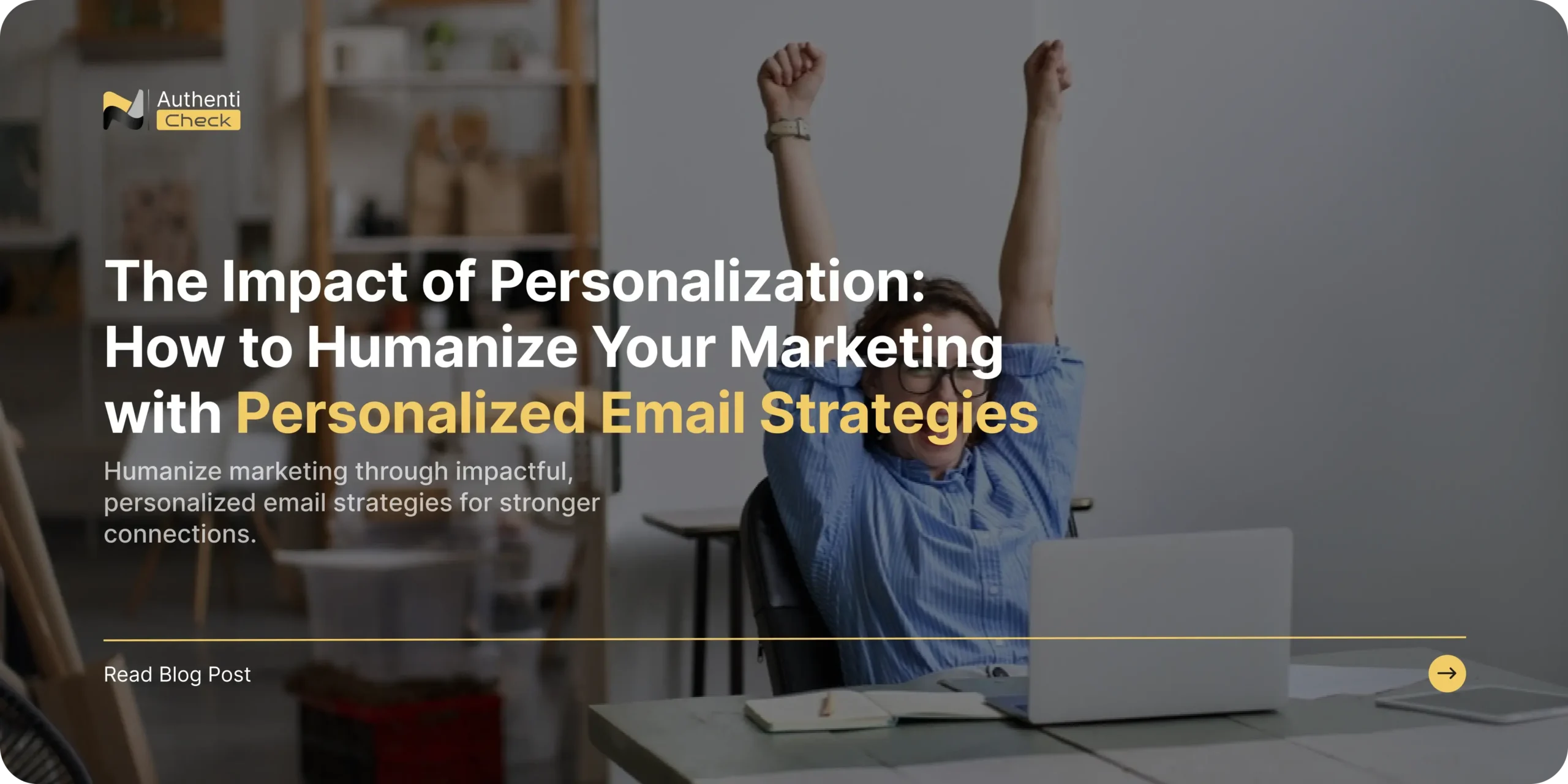
The Impact of Personalization: How to Humanize Your Marketing with Personalized Email Strategies
In today’s digital age, consumers are bombarded with countless emails daily. To cut through the noise and make a lasting impression, businesses must adopt a more personalized approach to their email marketing strategies. Personalization goes beyond simply addressing recipients by name; it’s about creating tailored experiences that resonate with individual needs and preferences. By humanizing your email marketing efforts, you can build stronger customer relationships, increase engagement, and drive conversions.
Understanding the Importance of Personalization
Personalization is no longer a luxury; it’s a necessity. Studies have shown that personalized emails can generate significantly higher open rates, click-through rates, and conversion rates compared to generic messages. By tailoring your content to specific audience segments, you demonstrate a genuine understanding of their needs and interests, fostering a sense of connection and trust.
Also read: How to Write Effective Email Closing Phrases?
The Role of Data in Personalization
To effectively customize your email campaigns, you need to gather and analyze data about your audience. This information can include demographics, purchase history, website behavior, and email interactions. By leveraging this data, you can create detailed customer profiles and segment your email list accordingly.
Personalization Techniques: Bringing Your Emails to Life
- Personalized Subject Lines
Personalized subject lines can significantly boost engagement. Incorporate dynamic content such as recipient names, preferences, or purchase history to catch attention, like “Hi [Name], Your favorite product is back in stock!” Additionally, create a sense of urgency by using time-sensitive offers or limited-time promotions to encourage immediate action.
- Dynamic Content
Tailor content to individual preferences by using conditional content blocks to display different products, recommendations, or calls to action based on user data. Personalize product recommendations by offering suggestions based on past purchases, browsing history, or similar customer behavior.
- Data Collection and Segmentation
Gather relevant data by collecting information about your subscribers’ preferences, demographics, and purchase history. Segment your audience by dividing your email list into smaller groups based on shared characteristics or behaviors. This allows you to deliver targeted content that resonates with specific segments.
- Leverage Automation
Establishing automated workflows is crucial for optimizing email marketing strategies. By leveraging email automation, you can send customized messages triggered by specific actions, such as welcome emails, abandoned cart reminders, or post-purchase follow-ups. Additionally, personalizing email sequences allows for the creation of targeted campaigns that nurture leads and foster relationships over time, enhancing customer engagement and driving conversions.
- Mobile Optimization
Ensure your email designs are responsive by optimizing them for mobile devices, ensuring a seamless user experience regardless of screen size. Additionally, consider incorporating mobile-specific content, such as exclusive promotions or tailored information, to encourage higher conversion rates among mobile users. By focusing on mobile optimization and exclusive content, you can significantly enhance user engagement and drive more successful outcomes.
- Behavioral Targeting
Monitor your email interactions by tracking metrics such as open rates, click-through rates, and other engagement indicators to gain insights into recipient behavior. Use this data to refine your content strategy. For instance, send follow-up emails to individuals who opened the email but did not click on any links, or provide additional incentives to encourage those who have shown interest but haven’t made a purchase yet.
Overcoming Challenges and Ensuring Deliverability
While personalization offers immense benefits, it is crucial to address potential challenges to maximize its effectiveness. Data privacy is a top concern; businesses must handle customer data responsibly and comply with privacy regulations such as GDPR and CCPA. Ensuring email deliverability is also vital; maintaining a clean email list and using authentication protocols can significantly improve this. Continuous testing and optimization of personalization strategies are necessary to refine approaches. Additionally, leveraging automation tools can help efficiently personalize emails for large audiences, ensuring scalability and consistency in communication.
Additional Tips for Humanizing Your Emails
Beyond personalization, consider these tips to make your emails more human and engaging:
- Use Conversational Tone
Write in a friendly, conversational tone to build rapport with your audience, fostering a connection that encourages engagement and trust.
- Show Your Personality
Let your brand’s unique personality come through in your email content to create a more engaging and authentic connection with your audience.
- Encourage Interaction
Encourage interaction by asking questions, inviting feedback, and fostering a sense of community. This engagement builds stronger connections and promotes active participation.
- Add a Personal Touch
Include handwritten notes, personalized images, or video messages to create a unique experience.
Bonus Tip
Remember to verify the email addresses in your database to ensure optimal deliverability and avoid spam traps. Use tools like autheticheck.co that can help you with fake email verification, domain validation, and disposable email detection. This will assist you to maintain a clean and accurate email list.
Conclusion
By embracing personalization and incorporating human elements into your email marketing, you can create a powerful connection with your audience. Remember, it’s not just about sending emails; it’s about building relationships. By understanding your customers, tailoring your messages, and delivering exceptional experiences, you can drive engagement, loyalty, and ultimately, business growth.
So, are you ready to take your email marketing to the next level? Start by collecting and analyzing customer data, segmenting your audience, and implementing personalized content. With a focus on human connection and continuous optimization, you can create email campaigns that resonate with your recipients and deliver outstanding results.